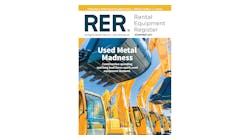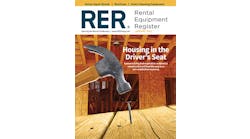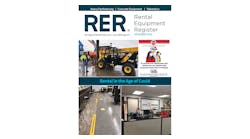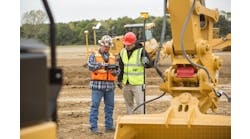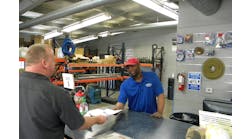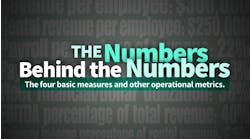The modernization of the rental industry began when rental companies began computerizing back in the 1980s. Here we are roughly two decades later, and while there are still a few holdouts that prefer not to embrace automation, running manual contracts and manual everything else, those companies now are relatively few and far between and it seems hard to believe that anybody can do business that way in this day and age.
If they prefer to do business manually and can still be successful, all the power to them, but they are now the minority.
The first wave of computerization primarily revolutionized point-of-sale systems as well as accounting software. The next major jump in computerization has been more recent and involves the service department. From what I've observed and learned from talking with software suppliers and their rental company customers, that is where the most dramatic change is likely to evolve in the coming years with the integration of telematics systems.
I know some people still don't know what I mean by telematics, but it is defined by Wikipedia as the science of sending, receiving and storing information via telecommunication devices, more narrowly and commonly applied to the use of global positioning systems. Such systems are rapidly becoming integrated with rental management systems commonly used in this industry, and I expect we'll see significant evolution in this arena in the coming years.
A few years ago, many rental people regarded telematics as too expensive. Now they are becoming more affordable and telematics gurus, such as Qualcomm's Bud Sims, who has years of experience in the rental business, point out that small independent rental companies might have the most to gain from adoption of satellite-based systems.
The value really comes down to controlling assets. One rental executive recently said his biggest concern is lack of ability to control his company's assets; not knowing at a given moment where not just a few, but the majority, of the assets were.
I was particularly impressed by the achievements of Woody Weld, CEO of Acme Lift in Phoenix. Acme has a fleet of very large aerial work platforms, which it rents to other rental companies that would normally not carry such large lifts, for re-rental to customers. So Acme begins with the challenge of trying to keep track of its assets that are scattered all over the country. Add to it the fact that those lifts are often used in big-city projects and the issue of unauthorized usage becomes even bigger.
For example, Acme has rented several lifts to Illini Hi-Reach for a big project in Chicago. The customer calls in a unit as off-rent, but is likely to rent it again in a short period of time, so for Illini to remove the unit in downtown Chicago and then re-deliver it again is complicated and expensive, so it makes more sense to leave it on site. Obviously this creates a perfect opportunity for unauthorized usage, but Acme's use of telematics — it is partnering with Qualcomm — as soon as somebody touches the machine, Acme knows about it.
The use of telematics makes it feasible for Acme to ensure timely preventive maintenance and other service needs. It also creates an environment of trust where the customer knows that Acme knows if the machine was utilized. Disputes over whether or not a customer used a machine after it was called off-rent no longer arise, and relationships are far stronger and more trusting.
Even if you don't think you are ready for the telematics step, just using your software effectively can save you bundles. Not being able to properly document maintenance history is costing you money. Making incorrect parts orders costs you time and money. Not having an automated warranty system means extra time spent and warranty opportunities overlooked. Computerized tracking of maintenance history facilitates your company's ability to analyze whether a particular unit is still profitable or if a particular make or model of machine is profitable, and improves the machine's re-sale value.
When you purchased your first point-of-sale system, obviously you didn't rush out and acquire the first system you heard about. The same way, as you look to take your service department to the next level, you need to do your homework first and make sure you know what you want and find out how to get it. But do your homework or you might fall behind. Then again, you might have the perfect system already, but you just aren't using it to its full capability.
The wheels of change are churning. Our coverage of technology in this issue is just scratching the surface. If you dig deeper, you'll figure out for yourself where the wheels are headed.
